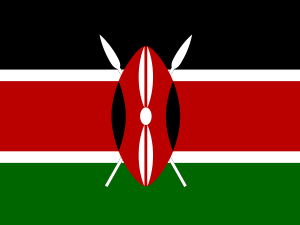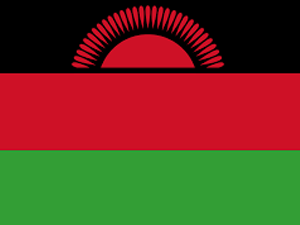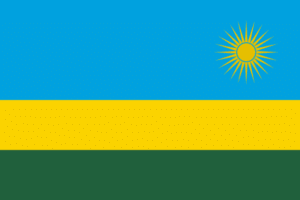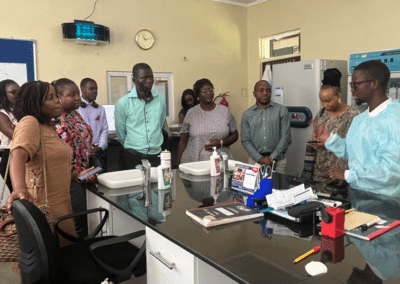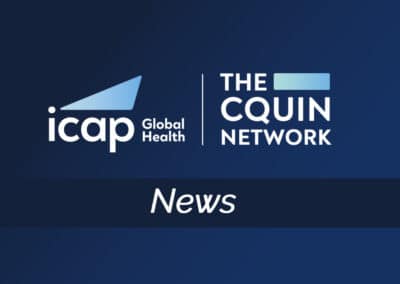Before Rachel Mudekereza, MD, MPH, became CQUIN’s new senior clinical advisor for West and Central Africa, she worked with ICAP Eswatini as the associate director for Maternal, Neonatal and Child Health, MNCH, leading the integrated HIV and reproductive health service component of the care and treatment program in the country.
In her new role, Dr. Mudekereza will lead CQUIN’s West and Central Africa regional hub, working with ICAP colleagues and CQUIN country teams to support the scale-up of high-quality DSD models with recipients of care at the center of service delivery.
What projects were you leading in Eswatini, and how has that experience prepared you for your new role?
Eswatini is a country with a very high prevalence of HIV among pregnant women. As the associate director for MNCH, my role included offering a holistic approach to preventing mother-to-child transmission of HIV. I designed clearly defined work plans with set milestones, planning them according to the donor requirements. I also worked closely with the Ministry of Health representative, helping Eswatini develop guidelines and evidence-based policies for MNCH. While leading the Raleigh Fitkin Memorial (RFM) hospital cluster in Eswatini, I played a role in implementing various differentiated service delivery models. Recently, we had a strong emphasis on responding to the current COVID-19 pandemic by making sure we start community ART deliveries.
What prompted your move to Côte d’Ivoire?
I think West and Central Africa offers new opportunities for scaling up and improving DSD for recipients of care. Côte d’Ivoire is the perfect setting for organizing a central hub. From Côte d’Ivoire, it is possible to coordinate activities for all other French-speaking countries within the network while supporting experience sharing. Having a French background, I am happy to live and work in a French-speaking environment.
What do you think of the work CQUIN does?
CQUIN offers a platform for countries to expand and improve DSD for the services provided to recipients of care. Working to achieve the global 95-95-95 targets, now is the time to think outside the box and bring up innovations for offering HIV services. It is crucial to put the client in the center and adjust the HIV care across the cascade for the client’s needs and preferences while following clinical guidelines. The CQUIN network moves away from the usual one-size-fits-all model to more specific client tailor-made models while maintaining public health principles. This is a win-win situation because these models alleviate the unnecessary burdens of HIV services on both the client and the health system. Another positive aspect of the role CQUIN is playing is the recent integration of maternal and child health and non-communicable disease management models, so recipients of care will be more resilient and empowered to continue with their daily life activities. CQUIN also recommends involving civil society in decision-making regarding community health interventions to offer HIV services beyond the health facility level.
What are you looking forward to doing most in your new position?
I am looking forward to liaising with country ministries of health by supporting them in developing innovations that will scale-up and expand DSD models, always putting the client in the center of service delivery while ensuring we follow the clinical guidelines.
I am also very excited to work with all the team members. Everyone is doing a great job in coming up with innovations that are working for their countries while showcasing these innovations to others and learning from what other countries have implemented to offer high-quality HIV health services.
Dr. Rachel Mudekereza has over 17 years of experience working in the HIV field. Since joining ICAP in 2009 as a clinical advisor, she has served in various capacities by designing, implementing, and evaluating Central and Southern African programs. Dr. Mudekereza has been with ICAP Eswatini for the past five years as the associate director for MNCH. She is a medical doctor and holds a Master of Public Health degree from Roehampton University in London, UK.









